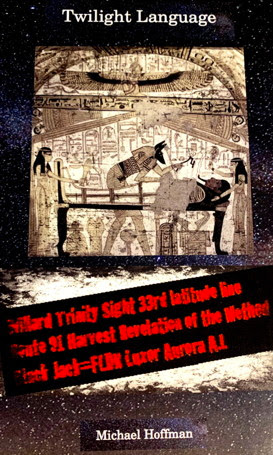Situation ethics from Leo X to Pope Francis
With interest rates too low, usury-loving Catholic nuns turn to the market
Like the Vatican Bank and 21st century Catholics generally, these nuns in the news report that follows have no moral qualms about despising low interest rates and seeking an alternative investment—until their prayers that interest rates go up— can be answered.
Contrary to heated denials from “Conservative” and “traditional” Catholics, the Church of Rome did indeed begin, during the Renaissance, to gradually overthrow its immemorial dogmatic law in conformity with situation ethics. Until the pontificate of Pope Leo X (1515), all profits on loans were a mortal sin requiring confession, restitution and absolution before the lender could be readmitted to Communion. Unrepentant usurers were refused Communion and burial in sacred ground. This writer’s study, “Usury in Christendom: The Mortal Sin that Was and Now is Not,” contains documentation demonstrating that situation ethics predates the pontificate of Pope Francis by five centuries.
Usury rates were too low for this usury-dependent order of Catholic nuns. Consequently, according to the Wall Street Journal, they turned to the stock market. — Michael Hoffman
_____________________
Get Thee to a Brokerage!
Low Rates Turn Nuns Into Traders
Sister Lioba manages German convent’s $2 million portfolio; a 2.6% return
By Georgi Kantchev
Wall Street Journal, Front page, Nov. 30, 2016
MARIENDONK NUNNERY, Germany—On a recent morning, Sister Lioba Zahn read the Bible, attended prayer, did the laundry and then prayed again. In the afternoon, she called her bank and started trading. Ultralow and negative interest rates have hit savings and investments around the developed world, crushing the income that many mom and pop investors rely on. Mom, pop and Sister Lioba.
For over a century, Mariendonk financed itself by selling milk and candles, and through income on its bank deposits. After the European Central Bank began cutting rates, eventually going all the way below zero to their current -0.4%, Sister Lioba realized her convent needed extra income to survive.“With rates so low, we must get a better return if we want to sustain the convent,” says Sister Lioba, who holds the position of “cellerarin,” a convent’s version of a chief financial officer.
Back in 2013, the nunnery’s roof needed repairing and the only car that the 28 sisters owned was nearing the end of its life. Calling her bank, Sister Lioba was offered a seven-year savings bond that carried a 1% annual return. She said she couldn’t believe what she was hearing.
“You don’t need to have studied mathematics to see that we were going down,” said Sister Lioba, who had studied psychology.
After morning prayer, she gathered her fellow nuns into a wood-paneled room inside the convent and showed a PowerPoint on low interest rates.
Presiding over the meeting, Sister Christiana Reemts, Mariendonk’s abbess, made an observation. “Twenty years ago we could get enough money from interest to renovate our whole building,” she remembered saying. “Now the interest rate can bring tears to one’s eyes.”
In Mariendonk, a decision was made and global markets had a new investor. Sister Lioba now runs a portfolio of roughly €2 million, or $2.1 million, from her convent office.
“I started by googling what a swap is,” Sister Lioba says, referring to a derivative that allows an investor to exchange the income stream of one asset with that of another.
The 54-year-old then began studying the financial pages of German newspapers and her bank’s research notes. “I now understand every third sentence instead every 10th when I started,” she says.
Carsten Klude, chief economist at Mariendonk’s house bank, M.M. Warburg & Co. KGaA, cautions against underestimating the nuns. “People often think that the sisters don’t get much from the outside world behind the thick walls of the monastery,” said Mr. Klude, who visits there several times a year. “But they have actually proven themselves to be quite the savvy investors.”
Last year, their portfolio yielded 2.6%. That is above the 0.3% return on German government debt but below the 9.6% the DAX stock market index returned last year. The Church of England has a portfolio valued at around £7 billion, or $8.7 billion, invested in assets including timber and hedge funds, and the Vatican has billions of assets tied up in real estate and private equity.
Mariendonk, an independent convent that receives little financial support from the Catholic Church, is a less likely addition to the fast-paced world of global investing. The red-brick convent is reached by a country road that snakes past farms, mills and sheep in the west German countryside.
Like many investors, Sister Lioba remembers the first stock she bought: Novo-Nordisk AS , a Danish drug company. She bought it in late 2013 and its value increased by around a third before she sold it earlier this year at a profit. “My only regret is why we didn’t buy some more at the time,” she says.
Her best trade so far: selling Deutsche Bank AG just before the financial giant’s stock started tanking. She also sold shares in Volkswagen AG in the fall of 2015, ahead of accusations that the German auto maker had cheated emissions tests. “Once those were stocks that you could take with you to bed,” she said. “Good that we got out in time.”
On the other hand, French bank BNP Paribas SA, Germany’s Daimler AG and telecom provider Telefónica Deutschland Holding AG , have all been losers for Mariendonk. To protect against such losses, Mariendonk says it never invests more than 4% of the overall portfolio in one asset.
Like other investors, Sister Lioba worries she could end up taking on too much risk as she joins the global hunt for yield. Traditional havens such as bonds offer such low returns that Mariendonk now invests around a third of its money in stocks, which are typically more volatile than fixed-income investments. Before rates fell below zero in 2014, the nunnery invested less than a quarter of its portfolio in equity.
Sister Lioba looks at three criteria: yield, low risk and moral acceptability. She has declined offers to invest in some oil companies and says emerging markets don’t match Mariendonk’s risk profile.
Read more at http://www.wsj.com/articles/get-thee-to-a-brokerage-low-rates-turn-nuns-into-traders-1480431892
Michael Hoffman is the author of The Occult Renaissance Church of Rome, forthcoming in 2017 from Independent History and Research
________________
This news service is made possible by donations from truthseekers and the purchase of our publications and recordings.
We like to hear from you, and while we can’t answer every e-mail, we do read them: hoffman(AT)revisionisthistory.org [AT = @]
________________













1 comment:
Investing in Big Pharma. Ouch.
Post a Comment